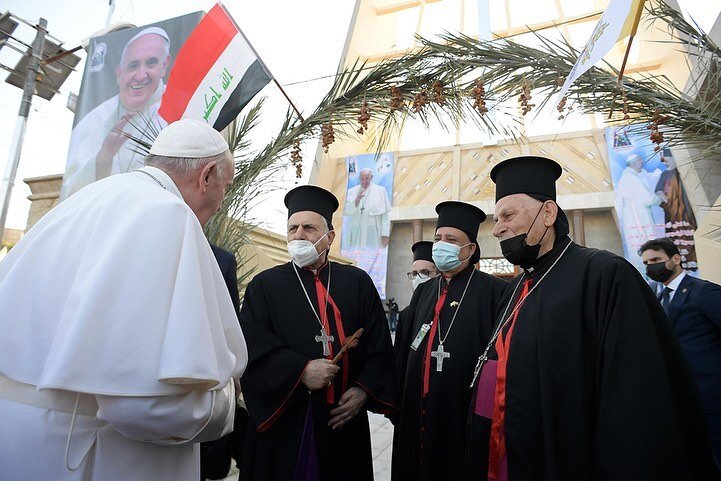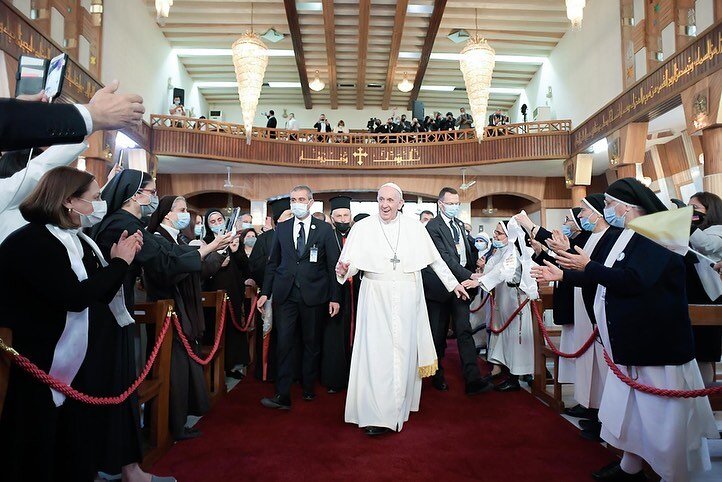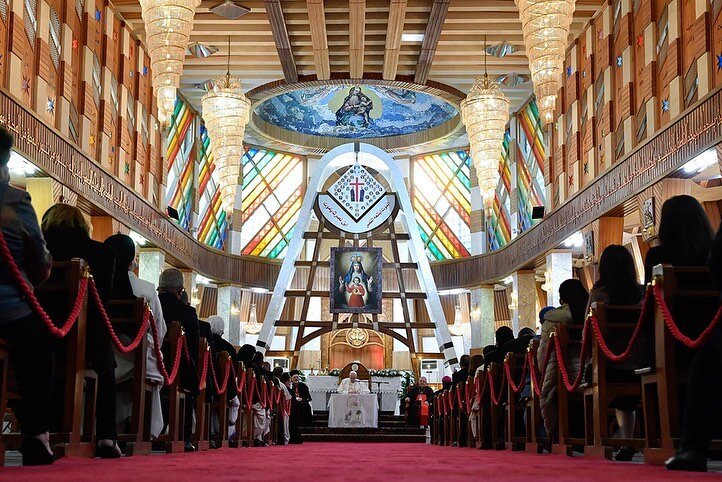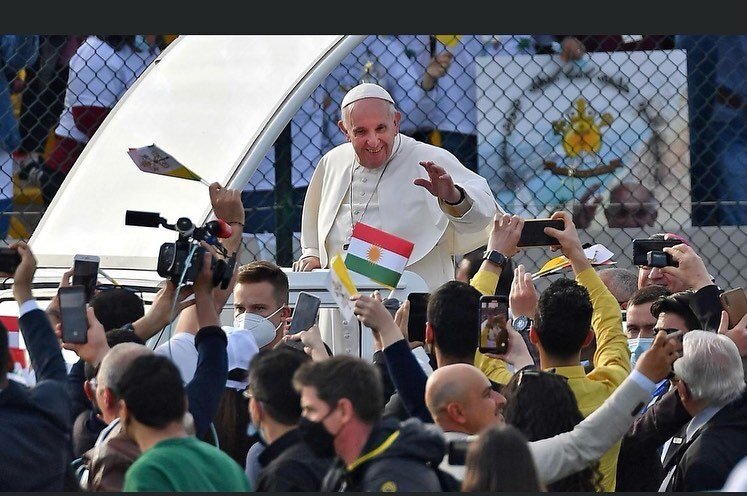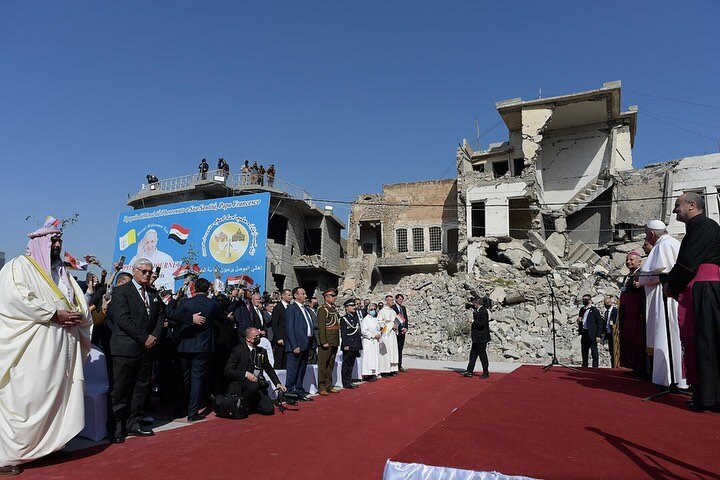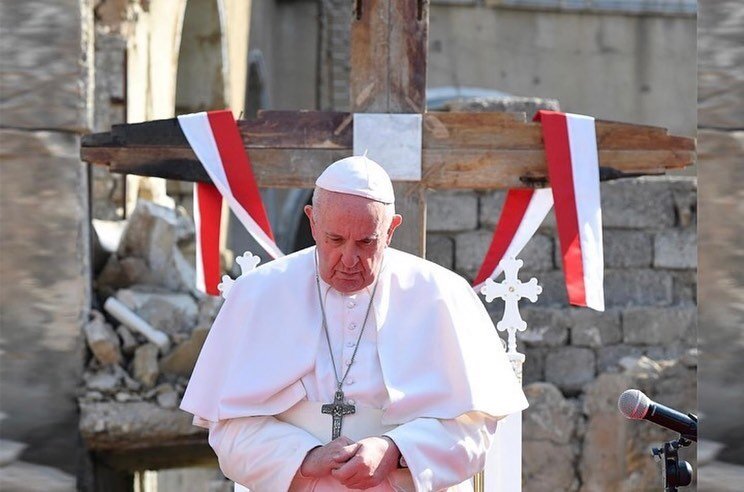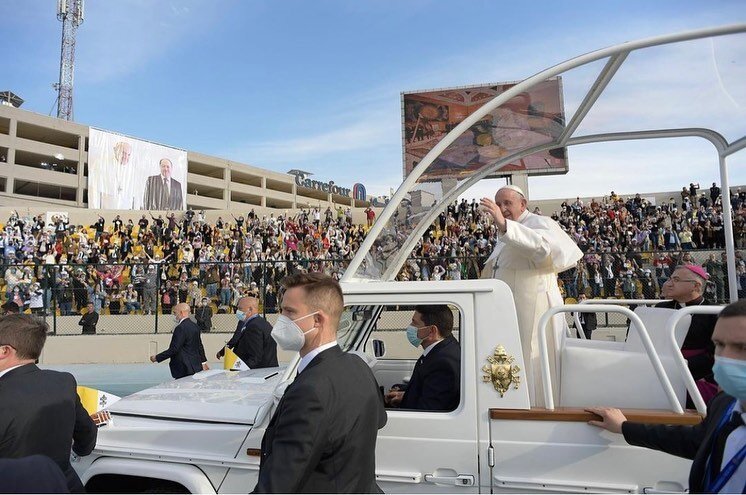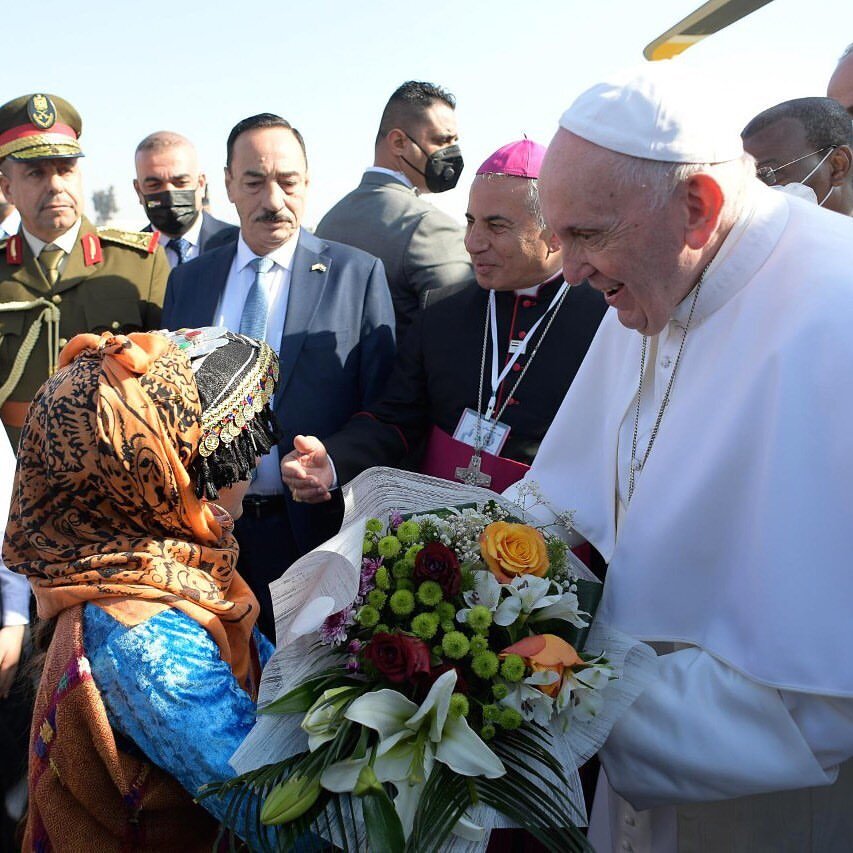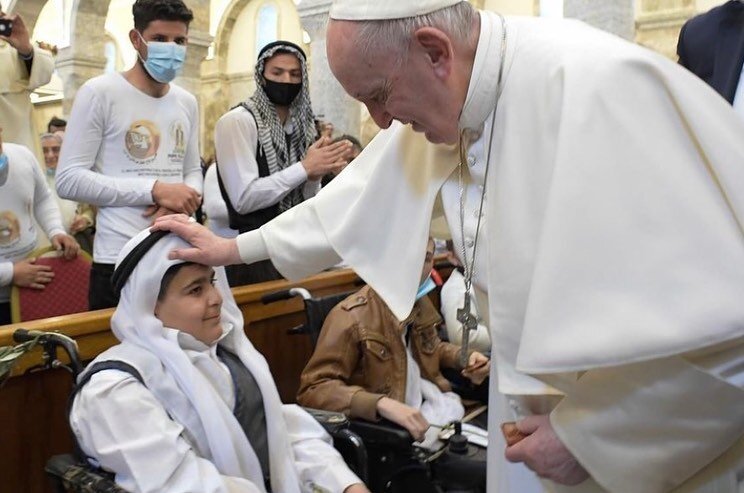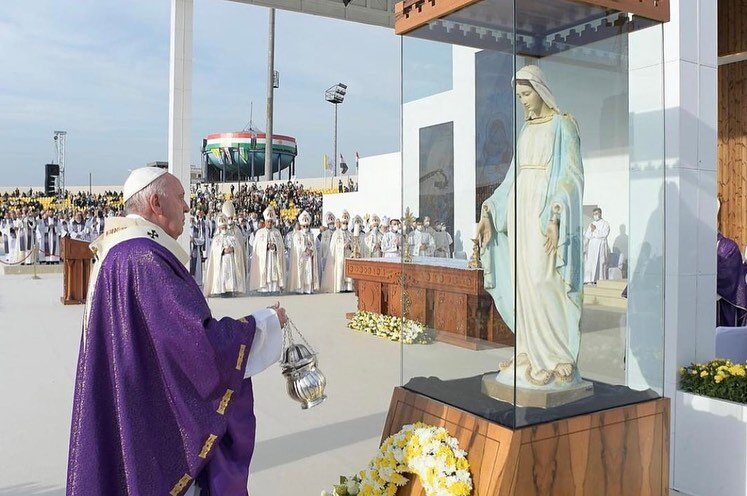Pope Brings New Hope
Iraq’s happiest weekend since 2003
By Noor Matti
Iraq’s pain and suffering has been well documented and highlighted in the media for the past 18 years, with minorities paying the highest price due to the instability and continuation of war and terror attacks. The peak of the suffering began in June 2014, when Islamic State militants took over the city of Mosul and began to target the Christian and other minorities with executions, theft, torture and expulsion.
Two months later, with the world watching, that nightmare grew as the terror group took over most of the Nineveh governorate; killing thousands of people, making over 250,000 people homeless overnight, and destroying historical, religious, and cultural sites.
It took three long years in order to liberate these cities, towns and villages and make it possible for families to return. By then, the Chaldean/Syriac/Assyrian population took yet another blow, as many decided to give up on their beloved Iraq and immigrate to another country. With most homes and churches destroyed, burned, and looted, the liberation of Nineveh Plains was of minimum joy. This all occurred after a previous decade of Iraq’s minority groups being targeted with countless numbers of attacks by Islamic extremists.
While the whole country has suffered in these two decades, no group other than the Christian and Mandaean minority has had their population decrease by 90 percent during that period of time. The results are nothing short of a long genocide being inflicted upon them. Despite all this, the Iraqi Christian population did maintain its religious and ethnic traditions, with celebrations of Christmas, Easter, Akitu and other holidays. However, there has never been a specific event or day to be called ‘’a great day’’ – there’s always been pain and suffering while trying to just survive.
For three days, that pain and suffering was forgotten, thanks to the first-ever papal visit to Mesopotamia as Pope Francis embarked on his apostolic journey to Iraq. The Pope was hoping to visit the country in 2020, but due to security concerns and the subsequent COVID-19 pandemic, the trip was shelved until March 6 - 8 of 2021.
In the weeks prior to the trip, the Iraqi Christian community and government authorities began to prepare as church volunteer committees began to plan the admission system, the schedule, and everything that needed to be in place for the multi-city visitations to take place. The government was busy too, as it set up the largest security measures ever taken in the country. They were busy with something else as well – cleaning up all the streets and areas that the Pope was set to visit and drive by – areas that have been neglected by the government for years now.
Upon his arrival, the entire country stopped as Christians and Muslims were glued to the video coverage of Pope Francis arriving at Baghdad’s airport and being greeted by Prime Minister Kadhimi. As they walked down the exit stairs, the Pope was greeted with lines of Iraq’s different ethnic and religious minority groups dancing to traditional Iraqi Chobi music. That’s when the two men smiled, leading to a change of the atmosphere in the country that has seen so much destruction. That moment established the base for what was set to happen in the three-day weekend – a moment of co-existence, love and peace.
After a conference with President Barham Saleh, Pope Francis immediately headed to Baghdad’s Sayedat al-najat Church, the site where 58 Iraqi Christians, including 2 priests, were murdered by Islamic extremists during Mass in 2010. He was welcomed at the gate by disabled Christians and Muslims, where he prayed for them before entering the church to meet with local bishops, priests and other religious officials.
In 2000, then-Pope John Paul II wanted to visit Iraq and specifically tour the ancient southern city of Ur – the birth location of Abraham. However, an agreement with Iraqi dictator Saddam Hussein could not be reached. Pope Francis finally arrived in Ur, fulfilling one of his missions of this trip — to promote co-existence and respect between Christians and Muslims, emphasizing the point that Christianity, Islam and Judaism are all Abrahamic religions.
In Ur, the Pope was joined by different Muslim-sect imams. They all prayed together in a sign of unity for the entire country. The Vatican had hoped for Jewish participation on this day as well; however, according to some Iraqi politicians, Iranian pressure ensured that it was not going to happen. From Ur, Pope Francis continued his message of peace with Islam as he visited the Iraqi Shii’te highest religious authority, Grand Ayotallah Ali Sistani.
The Pope dedicated his final day in the country to the Chaldean/Syriac/Assyrian population of Erbil and Nineveh, where he first held a prayer in Mosul city, with Bishop Najib, and then drove down the towns of Baghdeda and Karamles where he was greeted by more than 30,000 Christians. The atmosphere was nothing short of a party, where people, and even priests, began to dance and sing in the streets – the same streets that only five years ago had Islamic extremist roaming around, threatening the entire Christian population of Iraq.
The 84-year-old Pope was not done for the day. While he was in Nineveh, 10,000 Christians were waiting for him in Erbil’s Franso Hariri Stadium, where the excitement was so loud that it could have been heard 3 kilometers away. While the people had come to witness a Mass conducted by the Pope, the stadium felt like it was a concert, with people singing about their villages, sharing religious hymns – they even brought a dobala, or goblet drum..
His arrival led to the crowd going wild, as he lapped around the stadium to give everyone an opportunity to see him closely. The happiness on people’s faces in Baghdeda and Erbil were never seen before on Christian faces in Iraq. The Erbil stadium Mass really made an impression on the Pope as he stated, ‘’I can see first-hand that the Church in Iraq is alive, that Christ is alive and at work in this, his holy and faithful people.’’ What an incredible Easter message!
It was just a visit by a high religious official to a country – after all, the Pope frequently visits countries all around the world. However, Pope Francis’ trip was nothing short of a much needed injection for the Iraqi Christian community – a psychological booster that was needed so badly after years of displacement, attacks and discrimination. No other person in the world could have generated so much happiness for the disadvantaged minority group. And while the greatest weekend in Iraq since 2003 had to come to an end, the Pope still has the country in his mind as he ‘tweeted’ about Iraq seven times since returning to the Vatican.
While the situation in Iraq continues to be unstable, Iraqi Christians feel better about the future of their country. With international and local organizations spearheading the recovery process, most Chaldean/Syriac/Assyrian towns and villages in the Nineveh Plains have a 50 percent return rate since being liberated from the Islamic State.
The US-government-funded USAID program has implemented large rehabilitation projects across the Nineveh Plains including infrastructure support and livelihood initiatives focused in Tel Keppe, Bashiqa, Bartella, Karamles and Baghdeda. Meanwhile, Shlama Foundation is currently finishing powering 100 homes in Tesqopa and 30 farms around the Alqosh sub-district with solar energy technology – an initiative never before seen in Nineveh.
These projects are collectively leading to better living conditions for Christians and other minorities in the area. The question now is not, “Will the Chaldean/Syriac/Assyrian population survive in Iraq after 6,000 years of history?” It is, “What is that existence going to look like in the coming decades?”
With international support by government authorities and key religious leaders such as Pope Francis, the future certainly looks a lot brighter than the previous two decades – leading to more happy weekends and an even happier Easter!
